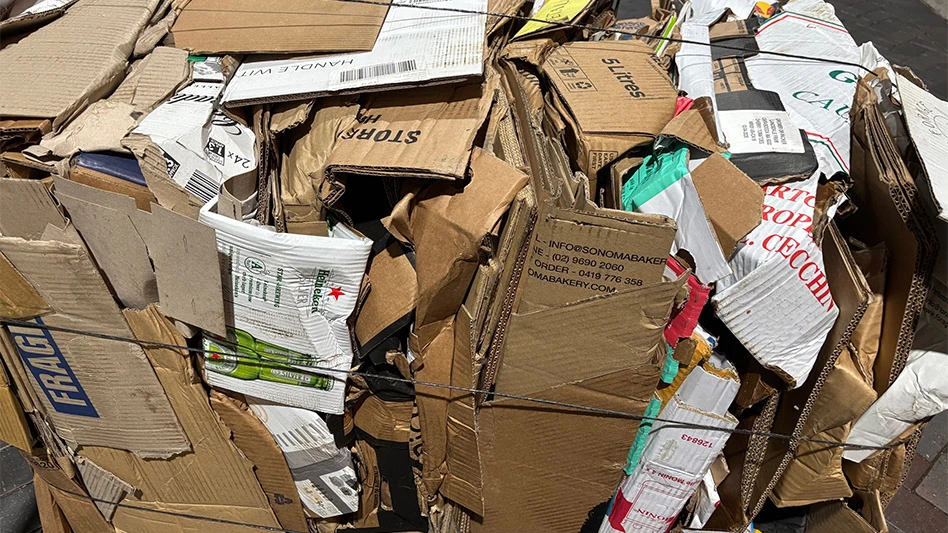
© jeremyculpdesign - stock.adobe.com
Across the globe, recycling companies and businesses connected to the industry have been affected by the COVID-19 pandemic. The Bureau of International Recycling (BIR), Brussels, has received and shared feedback from its member network of national associations on the effects of the pandemic in recent weeks:
Brazil
BIR states that Brazil has aligned itself broadly with the U.S. in terms of its measures for handling COVID-19. Efforts are being made to persuade the Brazilian government to recognize recycling as an essential activity.
Canada
According to BIR, Canada’s federal government has included recycling among operations deemed essential to the manufacturing supply chain. BIR reports that most recycling operations in Canada have decided to remain open but with reduced operations because their industrial suppliers are closed, and some have suspended public transactions. Volumes are also down across the country, and most facilities have cut staff accordingly. All businesses are required to follow physical distancing and strict cleaning practices.
China and Southeast Asia
Since China began to reopen its economy in mid-April, several cities—including Guangzhou, part of Beijing, Liaoning and Heilongjiang—have reported a second wave of coronavirus cases, according to the BIR. Zero cases have been recorded over recent days in Hong Kong, Taiwan and Vietnam, while a declining number of infections has been registered in Malaysia, Thailand and the Philippines. BIR states that these places are expected to relax restrictions in the coming weeks.
Overall, the COVID-19 pandemic has taken a heavy toll on China’s economy. BIR states that China’s economic output shrank by 6.8 percent in the first quarter of 2020, the lowest reading in decades, with industrial production, infrastructure investment and retail at an all-time low.
In the plastics sector in China and Southeast Asia, demand for recycled materials is at only 30 to 40 percent of prepandemic levels amid a slowdown in volumes requested by the plastics manufacturing industry and the cancellation of overseas orders, the BIR says. Recycled pellets are not selling well as a result of the oil price crash, which reduced prime prices to some of the lowest levels experienced in years.
BIR says “poor sentiment and uncertainty over the economic outlook” are dominating the plastics recycling market in China and Southeast Asia.
Plastics recyclers also face the challenge of low selling prices for their materials, while suppliers are unable to reduce their own selling prices because of the high cost of shipping and the impact on availability arising from lockdowns in exporting countries. BIR states that this situation will improve only when all countries lift their lockdowns and resume economic activities as before the COVID-19 outbreak.
France
In France, about 73 percent of recycling centers have remained open to receive materials, according to BIR. It has been estimated that April turnover losses within the recycling sector were about 50 percent, with similar levels expected for May. The decrease in activity is at 80 percent for metals, 30 percent for paper and plastics and 10 percent for glass, BIR states.
French paper mills are expected to encounter small shortages of recovered paper in May despite ongoing collection and sorting activities. For plastics, the recycling market has been hit by falling oil prices and reduced demand.
India
Logistics systems have been disrupted as a result of the COVID-19 pandemic, and associated production and consumption centers have been affected, BIR reports.
The Inland Importers & Consumers Association, the Material Recycling Association of India and the All India Nonferrous Metal Exim Association have alerted the Indian ministries of Finance, Commerce, Shipping and Industry on challenges the recycling industry faces. BIR reports that the government was sympathetic to the views expressed by these groups and has granted some relief. Both for breakbulk and containerized shipping, all detention and demurrage charges were removed during the lockdown with a grace period of 30 days if needed. Yet some shipping companies have declined to waive detention costs.
Italy
Italy’s metals sector reopened May 4, according to the BIR. Recycling companies have remained open throughout the pandemic owing to their crucial role in waste management. However, BIR reports that recycling activity is low, and most companies estimate that almost 70 percent of business has been lost during this period. It is expected, however, that this figure will increase as the metals sector ramps up again.
The recycling industry in Italy has sustained high costs through guaranteeing to stay open during the lockdown despite low levels of business. Three recycling associations in Italy—the Italian Association of Metal Recovery and Recycling Enterprises (ASSOFERMET), Unione Nazionale Imprese Recupero e Ricclo Maceri (UNIRIMA) and Associazione Nazionale Riciclatori Materie Plastiche (ASSORIMAP)—have drafted a letter to the Italian government to reinforce this message and to call for a change of mindset now that the COVID-19 pandemic has demonstrated the essential nature of recycling and waste management.
Middle East
As of May 4, some recyclers have returned to operation in Middle East nations, but the flow of scrap is 20 percent less than usual, BIR reports. All ports are operating normally, and exports are continuing to move to countries that can accept material.
Poland
According to BIR, Poland plans to loosen coronavirus-related restrictions in four phases, which began on April 20. However, for April and May, scrap volumes have decreased in the nation. BIR reports a 30 percent reduction in ferrous scrap, 50 percent in nonferrous scrap and about 20 percent in recovered paper. Virus-related production stoppages at factories have led to a loss in volume, and postproduction scrap from the automotive sector has suffered a decrease of 70 percent in the last four weeks.
Spain
BIR reports that all essential recycling services have been allowed to remain operating during the state of emergency, but business has been slow. Financial aid in the form of subsidies and tax moratoriums have been offered to companies to help alleviate the effects of the crisis.
Retail businesses are expected to reopen May 11, which will provide small and medium-sized recycling companies with additional supply, BIR says. Recycling organizations have been active in defending the interests of their member companies. Gremi de Recuperació, a Catalonian recycling association, has been providing legislative updates to help find the best options to avoid losses and call on administrators to adopt measures to soften the impact of the crisis through offering tax discounts.
U.K.
The U.K. still has lockdown measures in place, which have affected trading of materials. BIR states that half of metal recyclers closed quickly after the lockdown was implemented. Some of those metal recyclers have reopened a small portion of their sites but are experiencing trading-related challenges.
The British Metals Recycling Association (BMRA) has secured confirmation that metal recyclers would be included in the designation of the waste industry as key workers, which has enabled members to continue to trade if they choose to do so. BIR reports that some police officers in the U.K. have wrongly challenged metal traders, sometimes instructing them to close or for drivers to return to their yards. As a result, BMRA wrote to the Chief Constable of each of the 43 police forces in the U.K. to urge them to advise officers that metals recyclers are classified as key workers.
In addition, the U.K. government’s Department for Environment, Food and Rural Affairs has issued instructions for reopening local authority household waste and recycling centers. However, local authorities are resisting this because of staff shortages and a lack of protective equipment. Reopening could provide a minor boost for some larger metal recyclers with contracts to collect the household metals gathered at these sites.
U.S.
In late April, many U.S. states shifted their response to the pandemic, with the focus moving from a public safety-led perspective to an economic recovery perspective. According to BIR, some governors have announced the lessening of COVID-19 restrictions.
As of May 4, BIR states that 35 U.S. states have active stay-at-home orders with the closure of nonessential businesses. Also, 14 states specifically identified recycling as an essential or critical industry. Six of these orders target only retail operations and may include retail recycling operations.
Latest from Recycling Today
- Commodities firms part of critical minerals ‘vault’ project
- BIR submits concerns about aluminum trade restrictions
- Recycling Europe backs regional preference policy
- SMA announces board election results
- Volvo CE adds to Rudd Equipment’s territory
- Cups made with PP earn 'Widely Recyclable' designation
- Recology drivers increase San Francisco collection for Super Bowl week
- Terex, Rev Group complete merger





